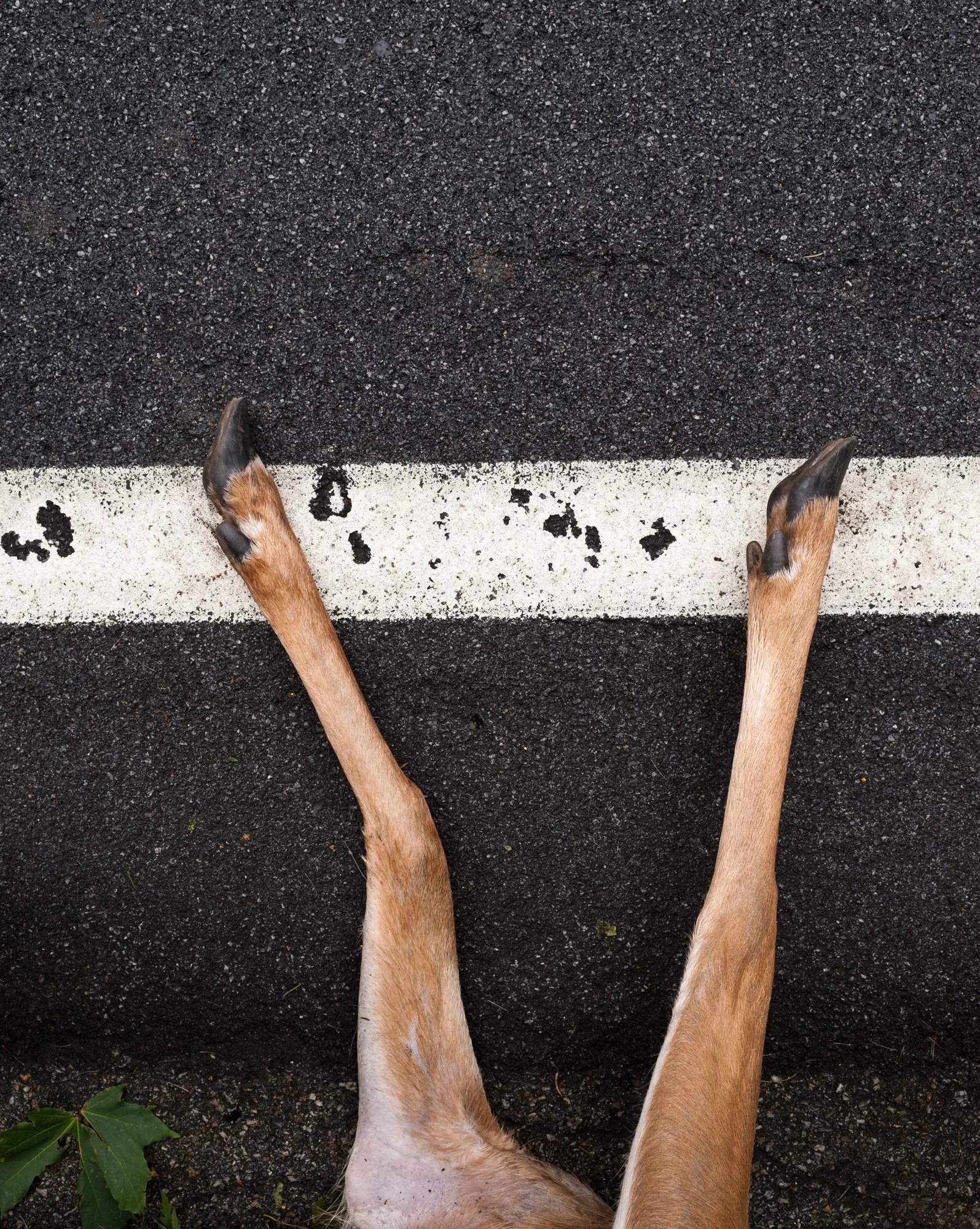Reclaimed
With increasing habitat fragmentation, the loss of natural predators, and the continual expansion of roadways, the New York Department of Transportation is tasked with disposing of an estimated 25,000 deer carcasses annually due to motor vehicle collisions. Traditional methods of disposal—such as incineration and mass burial—have become increasingly prohibitive, both financially and environmentally. In response, a more viable, sustainable, and ecologically responsible alternative has emerged: composting.
Deer composting involves layering the carcasses with carbon-rich materials such as wood chips, allowing them to break down naturally over time. This aerobic process generates enough heat to safely decompose the animal remains while neutralizing pathogens and reducing odors. The result is a nutrient-rich compost that can be used to restore soil health—transforming waste into a resource.
Reclaimed illustrates the ongoing conflict between human infrastructure and the natural world, and highlights the potential for interventions that align more closely with environmental systems. This project specifically considers the composting program carried out by the Department of transportation in Ulster County, New York, where over 800 deer carcasses are processed each year—reframing a narrative of loss into one of renewal.

